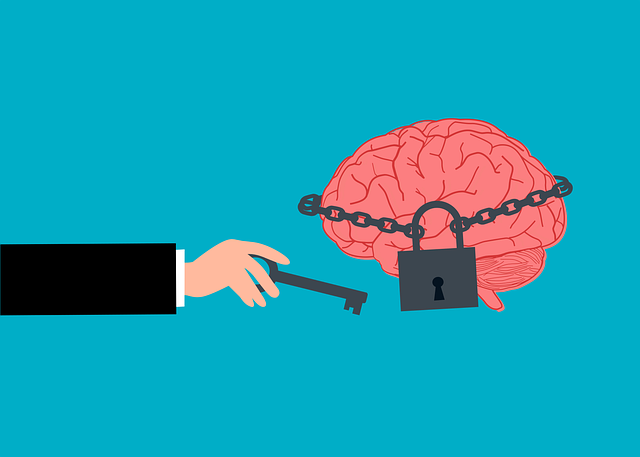Effective risk management is paramount in Louisville Gambling Therapy to ensure client safety and professional well-being. Mental health professionals must navigate subtle presentations of mental health issues, manage intense emotions, identify triggers, and address cultural sensitivities. Proactive strategies like stress management workshops and tailored support mitigate risks, enhancing client care. A comprehensive plan includes self-esteem improvement, burnout prevention, emotional intelligence training, regular updates, and a multi-faceted approach integrating social skills training, progress monitoring, emotional well-being promotion, and mental wellness coaching for sustainable recovery.
Louisville Gambling Therapy professionals face unique challenges managing risks associated with their sensitive practice. This article guides you through an essential process—risk management planning—to safeguard clients, protect practices, and ensure ethical standards. We explore the nuances of understanding risk in mental health, offering a structured approach to develop robust strategies. Learn how to implement and monitor these plans effectively, tailored for Louisville Gambling Therapy professionals, to create a secure therapeutic environment.
- Understanding Risk in Mental Health Practice
- Developing a Comprehensive Risk Management Plan
- Implementing and Monitoring Strategies for Louisville Gambling Therapy Professionals
Understanding Risk in Mental Health Practice

Understanding risk is paramount in mental health practice, especially for professionals navigating complex client scenarios. Unlike physical injuries, mental health issues often manifest subtley, making it crucial to be vigilant and proactive. Every client interaction presents unique challenges, from managing intense emotions to recognizing potential triggers for conditions like Louisville gambling therapy. Professionals must be adept at assessing not just the immediate risk but also the broader context, including cultural sensitivities and social skills deficiencies that could impact a client’s well-being.
For instance, a client struggling with anxiety might exhibit behaviors resembling those of someone experiencing a crisis. Effective risk management requires professionals to be attuned to these nuances, providing appropriate interventions such as stress management workshops within an organization or tailored support for cultural sensitivity in mental healthcare practice. By embracing this proactive approach, Louisville gambling therapy specialists and other mental health professionals can ensure they are equipped to handle diverse client needs and minimize potential risks.
Developing a Comprehensive Risk Management Plan

Developing a comprehensive risk management plan is an essential step for mental health professionals to safeguard their well-being and deliver optimal care. This strategy involves identifying potential risks, both internal and external, that may impact their practice and clients. Louisville Gambling Therapy, for instance, requires therapists to be vigilant about the unique challenges associated with treating individuals struggling with gambling addiction, including managing complex emotional situations and high-stakes decision-making processes.
A robust plan should incorporate self-esteem improvement techniques, burnout prevention strategies for healthcare providers, and emotional intelligence as core components. By fostering resilience and a healthy work-life balance, mental health professionals can mitigate risks effectively. Regularly reviewing and updating this plan ensures they remain equipped to navigate the dynamic landscape of their profession, providing sustainable support for both themselves and their clients.
Implementing and Monitoring Strategies for Louisville Gambling Therapy Professionals

Implementing effective risk management strategies is paramount for Louisville Gambling Therapy professionals to ensure client safety and maintain ethical standards. These strategies should encompass a multi-faceted approach, tailored to address the unique challenges associated with gambling addiction. One key component involves integrating Social Skills Training, which equips individuals with healthy coping mechanisms and enhances their ability to resist triggers. By fostering social connections and improving communication skills, Louisville Gambling Therapy practitioners can empower clients to navigate high-risk situations more effectively.
Additionally, monitoring progress is vital. Regular assessments and feedback sessions allow professionals to gauge the effectiveness of interventions and adjust plans accordingly. This includes introducing Emotional Well-being Promotion Techniques that not only support clients’ recovery but also equip them with tools to sustain mental wellness over time. Furthermore, considering the development of Mental Wellness Coaching Programs can provide tailored guidance, ensuring individuals stay on track during their journey towards overcoming gambling addiction.
Louisville Gambling Therapy professionals face unique challenges that require robust risk management strategies. By understanding the risks inherent in mental health practice, therapists can develop comprehensive plans tailored to their specific needs and client populations. Implementing and monitoring these strategies is essential to ensure a safe, effective, and ethical therapeutic environment for both practitioners and clients. Continuous evaluation and adaptation of risk management plans are key to navigating the complexities of Louisville Gambling Therapy and fostering positive outcomes.













